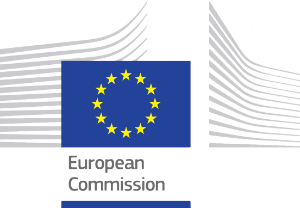The development of digital tools involves mediation between different disciplines and dialogue with users. The main goal of digital innovation is not only to provide a tool, but to promote a transdisciplinary development process. This involves promoting collaboration and the integration of knowledge from different fields, creating a dialogue and mediation between different disciplinary fields. Following this model, the ReInHerit Toolkit has been designed and tested using a co-creative, bottom-up approach. An Interdisciplinary community participated in the creation process through inclusive and collaborative workshops and hackathons.
Organisation in charge of best practice
MICC - UNIFI and MateraHUb
Location
Matera ITALY
Dates
1 week
Description
Mediation and co-creation process can be considered a best practice in digital tool development, to address innovative and sustainable frameworks in cultural heritage. This approach includes the active involvement of communities in the creative process through interdisciplinary hackathons. Co-design methods are used throughout the process to empathize with diverse audiences, understand their needs, define problems, generate innovative solutions, and test prototypes.
Following this approach, the ReInHerit Toolkit has been tested and redesigned during **interdisciplinary hackathons **organized as part of the AI/XR Summer School in Matera in July 2023. During the one week event, international speakers and experts discussed the theme "Innovative and Sustainable Approaches for User Engagement and Digital Interaction with Cultural Heritage," presenting the main results of studies conducted within the ReInHerit H2020 research project. Young PhD students actively participated in refining the toolkit, using open-source codes provided by the Digital Hub.

Teams of interdisciplinary PhD students collaborated with tailored experts, focusing on two main themes, "Gamification and Playful Engagement" and " Smart Interaction and Digital Content." Exploiting the Digital Hub's open-source codes, they adapted these technologies to local museum collections. This co-creation process introduced new technological developments, various interaction scenarios, and novel design elements to improve engagement, collaboration and inclusivity.

The bottom-up development process, mediating between different disciplinary fields, strengthens the vision of digital transformation. This vision aims to enable a collaborative network that facilitates the testing and development of the innovative ReInHerit Toolkit. In this dynamic innovation process, both ICT developers and Cultural Heritage professionals play active roles in creating usable tools. Users are an integral part of the co-creation and design process, with the emphasis on dialogue and deep understanding of their needs. Overall, starting these co-creative mediation and development processes aligns with a sustainable and future-oriented digital innovation strategy.
The students' proposals, created during the hackathons, have been showcased during the event through interviews, videos and lectures at local museums. The contribution of MateraHub and the MICC Center was crucial in beginning a collaborative process with the local museum community, creative industries and technology experts. This collaborative effort is expected to continue with further co-creation events in other local museums, including the MagmaFest 2023at the Giovanni Ridola Archaeological Museum. The engagement of local stakeholders and policymakers highlights the broader impact and relevance of the mediation and co-creation process in fostering meaningful connections between technology, culture and local community.
Links
Resources needed
Resources include open-source codes from the ReInHerit Digital Hub, essential for adapting technologies to local museum collections. The process involves international experts, young students, and tailored specialists, emphasizing themes like "Gamification and Playful Engagement" and "Smart Interaction and Digital Content." Crucial resources encompass the AI/XR Summer School, MateraHub, and the MICC Center, fostering collaboration with local museums, creative industries, and technology experts. This sustainable and inclusive strategy demands ongoing engagement, showcasing the broader impact of mediation and co-creation in bridging technology, culture, and the local community.
Challenges encountered
Coordinating diverse expertise during co-creative workshops and hackathons proved challenging, requiring effective communication to bridge disciplinary gaps. Adaptation of the Digital Hub's open-source codes, while valuable, presented technical challenges in terms of compatibility and integration, requiring some level of technical expertise. Involving local communities and stakeholders in the co-creation process posed challenges, requiring a delicate balance between different needs and expectations. Sustaining momentum beyond the initial development phase proved challenging, requiring continuous effort to ensure ongoing collaboration, participation and relevance in following co-creation events. These challenges underscore the complexity of interdisciplinary projects, highlighting the need to address communication barriers, technical complexities, and community engagement issues for the lasting success and impact of innovative digital tools in the cultural heritage sector. Despite these challenges, the ReInHerit Toolkit's ability to overcome obstacles and achieve success highlights its resilience and the importance of its transdisciplinary approach in fostering meaningful connections between technology, culture, and local communities.
Evidence of success
The design, improvement, and customization of toolkit applications were accomplished through inclusive workshops and hackathons, involving a diverse community of international experts, young PhD students, and specialized professionals. This collaborative approach ensured a rich exchange of ideas, perspectives and expertise from various disciplines, contributing to the comprehensiveness and relevance of the toolkit. Also the design of new types of interactions and applications based on the reuse of existing open source codes is a sign of success, even without considering the actual development of such applications.
Potential for transfer
The collaboration with MateraHub and the MICC Center further strengthens the evidence of success. Their crucial roles in initiating a collaborative process with the local museum community, creative industries, and technology experts underscore the toolkit's broader impact and relevance beyond academic settings. Cultural Convergence and the engagement of local stakeholders in following events like MagmaFest 2023 at the Giovanni Ridola Archaeological Museum (Matera) signifies the toolkit's influence in bridging the gap between technology, cultural sectors and the local community.
Further Information
A reasonable duration for a productive Hackathon is 1 week; can be shortened to a few days when considering a preliminary on-line preparation.
Get in touch
Click here to send us an email, if you have any question or comment on this best practice.

